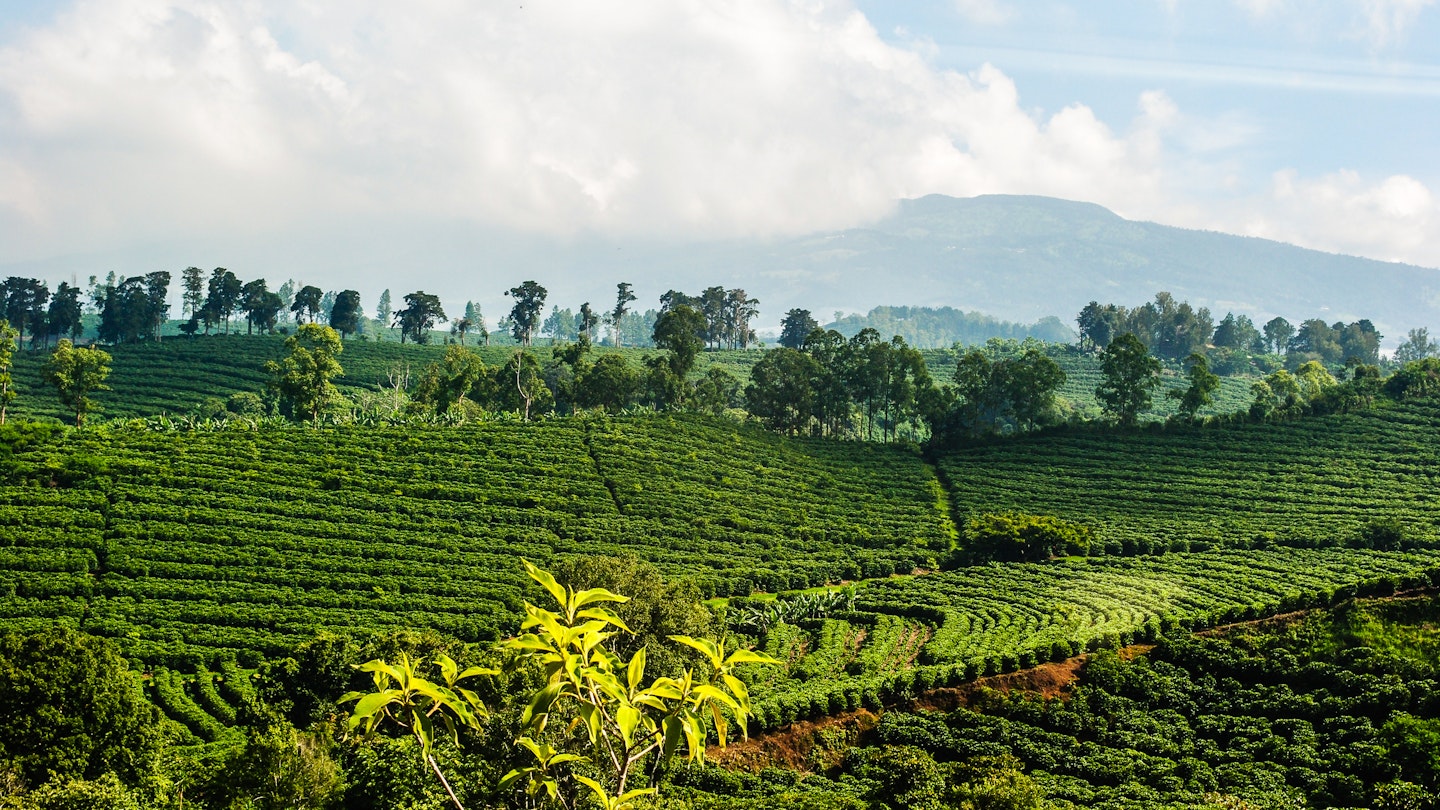For Costa Ricans, coffee is more than just a caffeine kick. The coffee bean is nicknamed grano de oro — the golden grain — in part because of how the industry has shaped the entire country’s development. As one of the world’s top exporters, you won’t find a better cup of coffee anywhere else. Even Pope Francis is a fan, calling Costa Rica’s brew “the world’s best coffee.”
So if there’s one truly authentic Costa Rican experience to have, it’s a trip to a coffee farm. Here are the best five coffee tours to take.
The Costa Rica Coffee Tour Experience
To truly understand Costa Rica’s connection to the popular brew, a coffee tour is an excellent place to start. A traditional tour will begin with the history of coffee worldwide before guiding visitors through a farm to follow the process from seed to bean to cup.
Coffee is grown in mountainous regions across Costa Rica. Whether you arrive at Juan Santamaría International Airport (near San José) or Daniel Oduber Quirós International Airport (in Liberia), you can be on a coffee farm within 30 minutes.
The best coffee-growing regions feature high altitude and volcanic soils that create an ideal climate for the plants. In Costa Rica, those conditions aren’t hard to find.
Naranjo, a historic village in the Central Valley, has been producing coffee for more than 150 years. There are cafetales (coffee farms) in mountainous towns and regions such as Tarrazú, Tres Ríos, Orosí, Brunca, and Turrialba. Each region will claim that their coffee is the best in Costa Rica, but it really all comes down to personal preference.
By law, virtually all coffee grown in Costa Rica is arabica, meaning it comes from the Coffea arabica plant first found in the Middle East. Regardless of where in the country the plants are grown, coffee berries are harvested by hand when they are ripe.
The milled beans are bagged and exported. If the coffee is staying in Costa Rica, they are roasted and packaged for sale. If the beans have been processed as part of your tour, the guide might roast, grind, and brew the freshest cup of coffee you’ve ever had.
Choosing a Costa Rica Coffee Tour
Much like a craft brewery tour, most coffee farmers in Costa Rica follow similar steps. Therefore, what matters is what region of Costa Rica you’re visiting and what type of tour interests you.
Coffee Tours in Costa Rica’s Central Valley
The world’s best-known coffee company – Starbucks – runs Hacienda Alsacia, located just 30 minutes from the San José airport. In addition to the small-batch coffee they grow, Hacienda Alsacia is also researching climate- and disease-resistant variants. The 1.5-hour tour runs daily from 8 am – 4 pm with prices starting at US$30 for adults.
In the nearby city of Heredia (within 20 minutes of the airport) is Café Britt, the best-known brand of gourmet Costa Rican coffee. They’ve offered tours since 1991 and make the coffee found at upscale restaurants and gift shops across the country. Café Britt offers a variety of tours ranging from a 1.5-hour coffee-lovers tour (starting at US$26) to a six-hour coffee and adventure tour ($123).
Coffee Tours in Monteverde/La Fortuna
Nestled in the mountain town of Monteverde, Don Juan offers a three-in-one tour that focuses on coffee but also highlights chocolate’s indigenous history and sugarcane production. Tours run daily at 8 am, 10 am, 1 pm, and 3 pm and are fully accessible.
Across Lake Arenal, in La Fortuna, North Fields Cafe provides a similar experience in the shadow of Arenal Volcano. Daily tours run from 8 am – 4 pm.
Coffee Tours in Guanacaste
Guanacaste’s climate is better suited for sugarcane, but the Tío Leo Coffee Tour—minutes away from Daniel Oduber Quirós International Airport—is a worthy stop on your way to (or from) the Nicoya Peninsula’s beautiful beaches. Morning tours run daily from 8 am – 11. Tickets are $25 per person.
Few activities combine as much history and culture—not to mention flavor—into a single, quintessentially Costa Rican experience.





